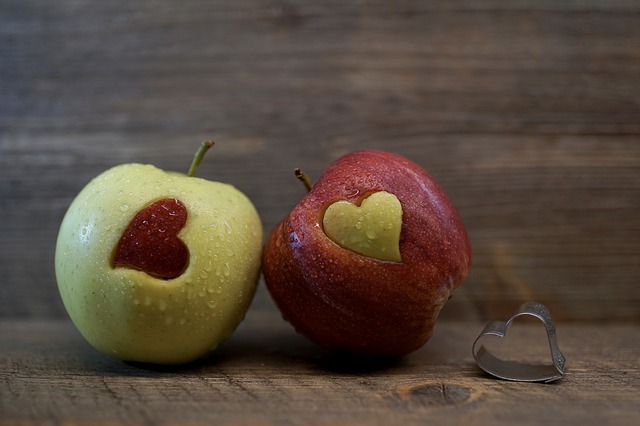 If you are hosting a playdate or party and are interested in ways to make your event more food allergy friendly, thank you! Food allergy safety is always on the minds of food allergy families, and we are so thankful anytime non-food allergy families are mindful of our struggle and want to help. I do not demand that hosts go out of their way to accommodate my son, but whenever someone makes any effort to, it is so greatly appreciated. I want to call out that simply by inviting a child with food allergies to your playdate/party, your inclusiveness makes the occasion more food allergy friendly. I’ve heard of children excluded from events because of their food allergies, which makes me sad!
If you are hosting a playdate or party and are interested in ways to make your event more food allergy friendly, thank you! Food allergy safety is always on the minds of food allergy families, and we are so thankful anytime non-food allergy families are mindful of our struggle and want to help. I do not demand that hosts go out of their way to accommodate my son, but whenever someone makes any effort to, it is so greatly appreciated. I want to call out that simply by inviting a child with food allergies to your playdate/party, your inclusiveness makes the occasion more food allergy friendly. I’ve heard of children excluded from events because of their food allergies, which makes me sad!
There are many ways to be a friend to food allergy families. Here are some ideas to consider:
Start the dialogue/include the food allergy parent
It may seem small, but putting the topic of food allergy safety on the table for discussion includes the parent and is a huge step towards making a playdate more allergy friendly.
One way is to let parents know they can reach out to you if their child has food allergies. I appreciate this so much when I see this note included on invitations. For more casual playdates, I’ve also seen this as a quick text, asking if a child has any food allergies.
Another way to include the food allergy parent is to invite them to stay at the playdate/party, in case that will help the host and/or parent feel more comfortable.
Feel free to ask questions
If you are not sure how to approach a food allergy and feel uneasy, we welcome any questions that can allow us to help you. Ask any questions that come to mind, and feel free to continue the conversation.
Food questions – Not sure if something is safe? Need ideas for what is safe to serve? Need suggestions for brands that are allergy safe? Food allergy parents are grateful for your interest in making the party/playdate more allergy friendly and want to help vs. burden you.
Allergy questions – There are different food allergens, different reactions, and different parental comfort levels. Not sure? Just ask! What’s a tree nut? Does a child’s dairy allergy also include baked dairy? Does the parent avoid crackers that do not contain nuts but are produced on the same facilities as products containing nuts? We will happily be your guide to demystify our child’s allergies.
Medical questions – If you are open to learning more about what to do in the case of a reaction, we are also happy to share symptoms to look out for; emergency care plan details; emergency contacts; and/or how to use an epi-pen. More information will hopefully help you as a host feel more comfortable and confident.
Keep food allergies in mind when menu planning
There is a range of ways to do this depending on your interest, time, and resources.
You could let food allergy families know what you are serving, so we have the option to pack a comparable but safe alternative. This makes it feel like less of a big deal that a child can’t eat the same food as everyone else, and helps a child feel more included. If your party is catered, knowing the menu and business name allows us to call and ask questions in advance.
You could consider providing a food allergy safe alternative to one, some, or all items on your menu.
At a birthday party, you could consider having the safe treat be the main treat vs. the alternative treat.
You could consider eliminating food allergens from your menu altogether.
Share or save food labels/have recipes available
Some food allergens hide in unexpected places, so even if an item sounds safe, many/most food allergy parents always check the food label. We get that food on a serving platter looks better than in the box or bag, but we would love to (or in many or most instances, need to) be able to scan ingredients.
You could have the label available next to the items.
One fellow food allergy mom shared about attending a party with an “Ingredients” box with all labels inside. This box idea makes information available to anybody who needs it while being less of an eyesore at your pretty party spread.
Some hosts may opt to text a photo of a food label for guidance while grocery shopping.
Similarly, if an item is homemade, having the recipe handy on your phone if possible may help food allergy parents determine if s/he finds a dish safe. One caveat is potential cross-contamination in ingredient manufacturing. (Some manufacturers disclose if a product, e.g. the flour you used in a homemade cake, was produced on facilities that also produces items containing top food allergens, but this is not required.)
Be aware of potential cross-contamination
Cross-contamination occurs when a food allergen is unintentionally transferred and results in accidental exposure. This can occur if the same knife is used to cut multiple food products, the same serving spoon is used for multiple dishes, or the same hands are used to prepare or serve multiple food items. Cross-contamination can also occur if multiple products are served on the same plate together, or if a serving dish is refilled with a different product after another runs out. Here are other ways to prevent cross-contamination:
Have children clean up after they eat – Clean hands help prevent cross-contamination. If one child eats something another child is allergic to and then plays with a toy that gets passed to the allergic child, this can be potentially very dangerous. In a study, hand sanitizer did not remove traces of food proteins. Hand washing with soap and water, or wiping hands with cleaning or baby wipes better ensure a safe play area after eating. You can read more about cleaning surfaces safely.
Have children sit down at the table to eat – Another way to prevent cross-contamination is for children to eat in a separate area from where they play. A child walking around the playspace with his snack can be scary to a food allergy parent.
I hope some of the tips above are helpful and seem doable! I’ve been truly touched to see some of the ideas in action. Don’t forget it’s a playdate/party and keep it light! Don’t take on anything that is too stressful, and know that sometimes your best efforts may not work out exactly as planned (e.g. lactose-free is not dairy-free, or a child may not be in the mood for the safe option provided). Food allergy parents appreciate your support and having you as a food allergy ally, and the kids will have a great time!
*Meet other families with food allergies or come support your little friends who do at Food Allergy Friends Playdate, a fun morning at STEMful in San Francisco, Saturday, May 19th, 10am – 12pm. The family event sponsored by De Fonte Law will include Little Bears Music, a SunButter storytime, and crafts provided by Artist & Craftsman Supply, Gluten Free & Allergy Friendly Expo, and Pocket Chefs. We’ll have raffle prizes from GF & AF Friendly Expo, Habitot Children’s Museum, Hilary’s Eat Well, Peekadoodle Kids Club, and Urbansitter. Hope to see you there!

















Love this guide, I’m going to share with our preschool friends who want to include my daughter. Thanks for writing this up.
Wow. What entitled post. The whole world cannot revolve around other peoples allergies. How about everyone caters for their events the way they see fit, and if you or your child has allergies, you keep an eye open for what you can and cannot eat. It’s up to you to handle your illness, not up to the rest of us to coddle you. Whatever happened to thanking the host for their kindness and hard work, rather than making more demands on the host?! Perhaps if you were less precious and more gracious, you’d get invited to more parties!
Thanks for your opinion! The article is not WHY to make a playdate/party more food allergy friendly, but rather different ways to do so. So, I am not trying to convince anybody to do anything they have no interest in doing. But I’ve been asked by considerate friends about how to accommodate my son, and this breaks down that there are actually many different ways to do so. I’ve been told that some of these ideas are actually more doable than they would have expected. It can be the little things. It’s just empathy, compassion, and grace as a host. Some of the ideas here are things my non food allergy friends have done without me asking for a single thing. I’ve never demanded anything. I present a spectrum of measures one can take because some people want to go the extra mile. That brings some joy as a host.
As a food allergy mom I always have extra food on hand. I bring his own snacks for preschool type classes that serve snacks. For functions that serve lunch or dinner, I bring his own entree in case my son can’t eat what is available. I try to bring safe homemade cupcakes to birthday parties. Do you know how exhausting this is? When I got to a party and my friend had made vegan cupcakes the main birthday dessert, I almost cried. It was my son’s first cupcake at a party. He is a 3 year old that can die from eating the wrong thing. I don’t really think that’s something that should make other people mad.
I found this information really helpful. My children don’t have food allergies, and I had no idea what daily life could be like for families managing food allergies until I started reading Laura’s articles on this site. She literally says in the first sentence, “Thank you” to hosts who are interested in making their parties food-allergy friendly. If I’m inviting someone to a party, I want them to feel welcome. If some of these tips can help do that (not to mention literally prevent a child from ending up in the hospital) then that doesn’t feel like an imposition on me as the host. It feels like the right thing to do.